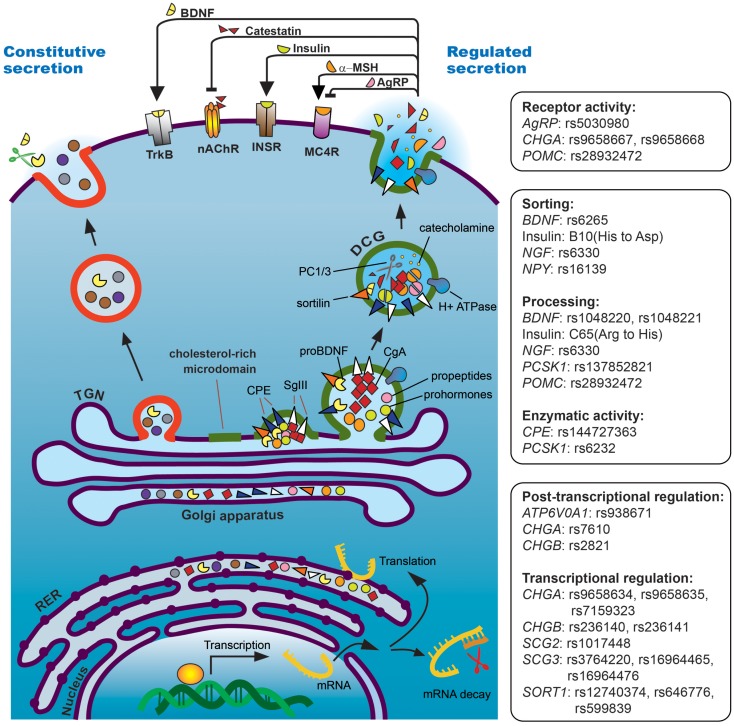Figure 1.
Regulated secretory pathway of a model neuroendocrine cell. Single nucleotide polymorphisms (SNPs) can affect granule biogenesis and release through these mechanisms: (1) SNPs in the promoter or 3′UTR of granule-associated genes modulate gene expression levels, resulting in altered granule biogenesis, (2) SNPs in the pro-domain of peptides or hormones block their processing and/or sorting into the regulated pathway, (3) SNPs in convertase/peptidase catalytic or regulatory domains reduce enzymatic activity and lead to aberrant propeptide processing, (4) SNPs in the signal peptide and/or sorting domain(s) disrupt regulated secretion, and (5) SNPs that change the processing or sequence of neuropeptides modulate membrane receptor binding affinity. TrkB, tropomyosin-related kinase B receptor; INSR, insulin receptor.

